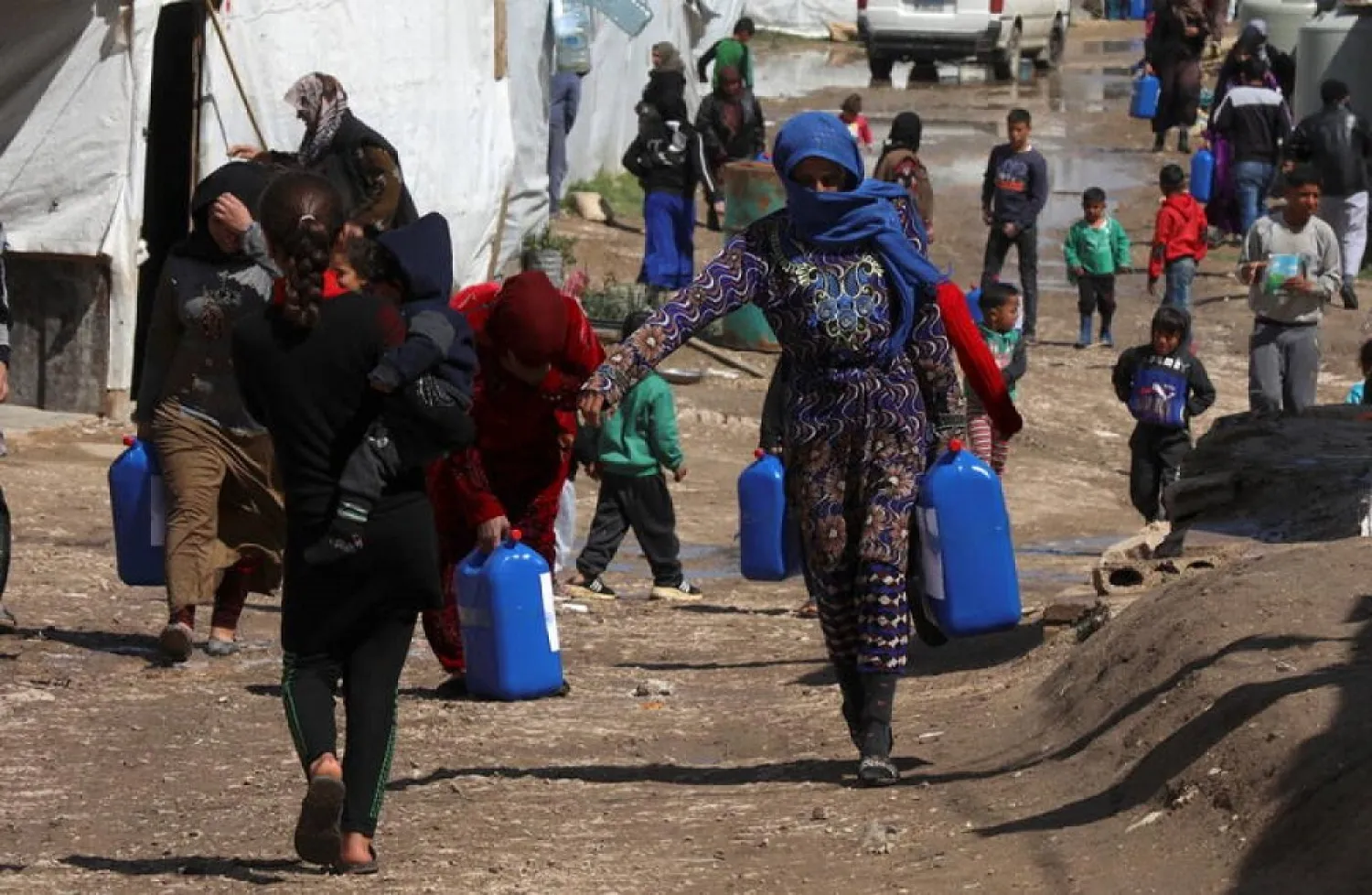Impoverished groups in Lebanon could soon receive more aid after a letter from international donors said on Wednesday there had been an agreement to hand out assistance in hard currency as the Lebanese pound crashed to a new low.
Aid to the country in the midst of a financial meltdown exacerbated by the COVID-19 pandemic is currently handed out in Lebanese pounds at rates set by the Central Bank.
But in a letter to the country's finance ministry seen by the Thomson Reuters Foundation, representatives of the European Union, United Nations and World Bank said they "take note of the verbal agreement" on Feb. 22 by the Central Bank chief and deputy prime minister for aid to be disbursed in US dollars.
"We are confident you share the urgency of rolling out the agreed-upon disbursement mechanisms at the earliest, in order to ensure the consistency and continuity of aid amidst increasingly challenging socio-economic conditions," the letter said.
Lebanon has one of the most unequal wealth distributions in the world and poverty has soared since an economic crisis erupted in 2019, worsened by an explosion in August that left Beirut's port and downtown business area in ruins.
Protesters burned tires and blocked roads in Beirut on Tuesday, raising fears of wider unrest in a country reeling from soaring unemployment and inflation, the COVID-19 pandemic and a financial crisis rooted in decades of state waste and graft.
Roughly half of the workforce relies on daily wages mostly paid in local currency, and a recent study by aid organization CARE found that 94% of Lebanon's population are earning less than the minimum wage.
Small victory
Human rights groups have urged donors to give aid directly to people struggling to afford basics like food, housing and health care, pointing to the government's squandering and mismanagement of aid given after the end of Lebanon's civil war in 1990.
Dan Azzi, an analyst and former chief executive of Standard Chartered Bank in Lebanon, said donors' decision to disburse aid in hard currency in response to public pressure was "a great development and a small victory for the Lebanese people".
"The next step is to monitor that the aid is going to the truly needy and not cronies of the sectarian corrupt leaders," he told the Thomson Reuters Foundation.
Outgoing Finance Minister Ghazi Wazni and Deputy Prime Minister Zeina Akar did not respond to a request for comment.
Donors want the changes to apply to a broad range of programs worth hundreds of millions of dollars a year for impoverished Lebanese and some of 1 million-plus Syrian and Palestinian refugees.
"After weeks of talks that went nowhere, last month (the government) told us they won't prevent dollarization of some programs while recognizing that some projects must continue in pounds," said a Western diplomat familiar with the negotiations.
The diplomat said aid disbursed in Lebanese pounds would have to be handed out at an exchange rate closer to the market rate.
"We're saying, 'Sorry, we don't want to suspend (aid), but give us a better rate," the diplomat said.
Market dealers said the Lebanese pound was trading at around 15,000 to the dollar, having lost a third of its value in the last two weeks to stand at barely a 10th of what it was worth in late 2019, when Lebanon's economic and financial crisis erupted.
The diplomat said donors had become fed up with most of their aid being swallowed up by the Central Bank, as it exchanged their dollars for Lebanese pounds at a third to a half of the market rate, preventing most of it reaching the poor.
"Banks were literally absconding with two-thirds of the money," said Azzi, the analyst.









